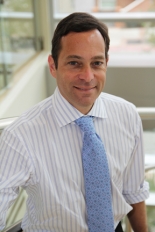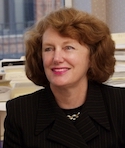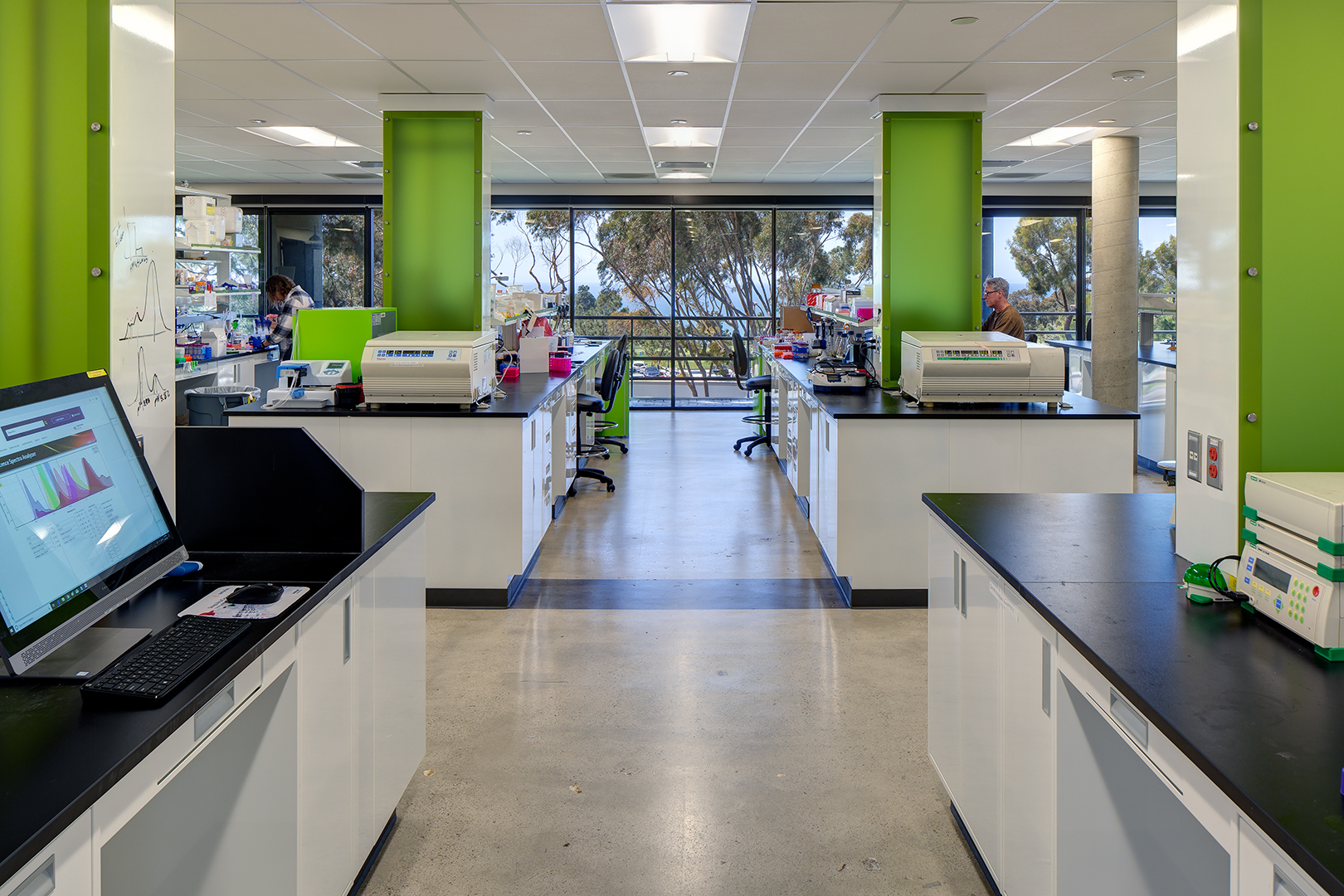Daily Business Report-Aug. 1, 2019
Interior of the Inhibrx company’s offices in Torrey Pines Science Park. (Photos courtesy of DZI Construction)
DZI Construction completes $6.5 million
lab and tenant improvements for Inhibrx
DZI Construction Inc. has completed a $6.5 million, 35,000-square-foot laboratory and office tenant improvement for Inhibrx, a clinical stage biologic therapeutic company located in Torrey Pines Science Park.
Designed by Ferguson, Pape, Baldwin Architects, the Class A creative office and lab improvements incorporate elements of nature throughout, including dramatic moss living walls and wood accents. Scientists are afforded sweeping views of the Pacific Ocean and Torrey Pines, as laboratories were given priority on view opportunities. Ubiquitous interior glazing extends those views throughout the building, and a series of folding glass walls bring the outside in.

DZI transformed the space in 22 weeks with major upgrades to the mechanical and electrical systems, lab air gas and vacuum systems, and new finishes. The team that accomplished the improvements included: Greg Dziewit, project manager; Steve Rachal, superintendent; Pac Rim Mechanical, Cooper Electric, Cutting Edge Drywall and Taber Custom Millwork.
DZI Construction was founded in 2011 by Greg Dziewit and Debra Bermudes-Dziewit.
___________________
Harvest Hills to become Escondido’s first
net zero energy, carbon-neutral neighborhood
Concordia Homes announced a series of substantial design updates and a new name for its proposed housing project in Escondido’s San Pasqual Valley. Previously known as Safari Highlands Ranch, the project will now be Harvest Hills – Escondido’s first-ever carbon neutral, net zero energy and agri-neighborhood housing community.
Harvest Hills will continue Escondido’s long agricultural tradition in a contemporary way as an agri-neighborhood, according to Concordia Homes’ announcement. Its
seven distinct neighborhoods will include gardens, groves and boutique greenhouses that provide families with the opportunity to grow their own fruit, vegetables and herbs through an adopt-a-plot program.
A new community center named The Farmhouse will serve as the heart of the community, creating a gathering place for new neighbors with an onsite working farm, an aquaponics greenhouse, as well as a recreational area and gathering space.

As a net zero energy and carbon neutral community, Harvest Hills will showcase the future of renewable energy-powered neighborhoods that help protect the environment and support climate action goals. Through the addition of extensive rooftop solar and battery energy storage systems and energy efficient appliances, lighting, insulation and windows, the community will produce enough clean, renewable energy on-site to meet its energy demand.
Additionally, Harvest Hills will offset all of its greenhouse gas (GHG) emissions as a carbon neutral community through a variety of innovative measures, including a first-of-its-kind electric vehicle ownership financial incentive program.
Harvest Hills will include 550 estate homes and a new, fully equipped fire station surrounded by more than 762 acres of permanent open space and nine miles of public trails. Each of Harvest Hills’ seven neighborhoods will have a name that honors a piece of Escondido’s agricultural heritage, such as Alexandria at Harvest Hills and Valencia at Harvest Hills after the area’s first Alexandria de Muscat grape and Valencia orange crops. The community will deliver more than $58 million worth of benefits for Escondido residents that improve fire safety, support local schools like San Pasqual Union School, enhance the Eagle Crest Golf Club and deliver substantial local road improvements, according to Concordia Homes.
__________________

San Diego State University
grant funding soars to $148.5 million
Grant funding at San Diego State University rose 10 percent in 2018-19, reaching $148.5 million—the second-highest amount in university history.
The increase demonstrates the university’s continued excellence in achieving support for its research activities, notably in a year that saw a government shutdown and an unpredictable federal budget environment.
Some 312 investigators received 786 awards. Funding from major agencies like the National Institutes of Health (NIH) and the National Science Foundation (NSF) increased, reaching $28.9 million and $9.3 million, respectively.
The university received its largest-ever NIH award, a five-year $19.9 million grant to support health disparities research and create the SDSU HealthLINK Center. Twenty-four grants exceeded $1 million and supported research on Hispanic health, STEM education and water science.
Read more…
__________________
Controversial inclusionary housing
ordinance passes council in 5-4 vote
City News Service
The San Diego City Council tentatively approved a controversial set of amendments to the city’s inclusionary housing regulations Tuesday in an effort to increase housing development for low- and moderate-income families.
__________________
UPS applies for Part 135 certification
to operate commercial UAS flights
AUVSI
UPS has applied for Part 135 certification to conduct commercial UAS flights in the UPS network under a subsidiary business called UPS Flight Forward Inc. A recently incorporated business, UPS Flight Forward could receive Part 135 certification as early as this year, which would lay the groundwork for UPS having one of the first fully-certified, revenue-generating drone operations in the United States.
__________________

Annual August closures coming to several county parks
Six San Diego County parks will be closed in August, a safety measure taken each year because of the month’s typically high temperatures. El Capitan Preserve near Lakeside, Hellhole Canyon Preserve in Valley Center, Mt. Gower Preserve near Ramona and Wilderness Gardens in Pala will be closed Aug. 1 through Aug. 31. In addition, Agua Caliente Regional Park in Anza Borrego and Vallecito County Park near Julian are closed all summer; they reopen Labor Day weekend.
__________________
Abandoned buildings that attract drug
use and prostitution to be rehabilitated
Two abandoned buildings in Grant Hill that attract drug use and prostitution will be rehabilitated by a court-appointed receiver, San Diego City Attorney Mara Elliott announced Wednesday.
The buildings, a six-unit apartment complex and a detached single-family dwelling on a 7,000-square-foot parcel, have a history of health and safety violations and have been the subject of numerous complaints from neighbors, said Elliott. The property has been vacant for the last 23 years.
In confirming the appointment of a receiver, Superior Court Judge Eddie Sturgeon found that the violations at 2563-2565½ L Street “are so extensive and of such a nature that they substantially endanger the health and safety of the occupants and the general public.”
A complaint filed by the City Attorney’s Office earlier this month alleged that the property owner, Leonard R. Edwards, has been “blatantly and willfully” in violation of the San Diego Municipal Code and the California Health & Safety Code.
__________________
Dinora Reyna named executive director
of San Diego Organizing Project

Lead Community Organizer Dinora Reyna has been named executive director of the San Diego Organizing Project following the departure of Kevin Malone, who led the organization for more than a decade. Decision makers included SDOP leaders, clergy and board of directors.
Reyna has been with the nonprofit representing 29 faith congregations since 2014 and previously served as interim executive director of SDOP in 2017.
Reyna is a first generation Mexican-Salvadoran college graduate and has a master’s degree in public affairs and applied politics from the University of San Francisco. As an organizer, Reyna led SDOP’s voter engagement work and helped launch the San Diego Rapid Response Network in 2017 to protect undocumented immigrants from raids by Immigration and Customs Enforcement and Customs and U.S. Border Protection. Reyna is currently a Steering Committee member of the Rapid Response Network.
__________________
Registration opens Aug. 5 for fall semester
at San Diego Community College District
Open registration for the fall semester at the San Diego Community College District (SDCCD) begins Aug. 5. Students can choose from thousands of classes in more than 400 academic programs at San Diego City, Mesa, and Miramar colleges, and Continuing Education.
Students who complete their transfer requirements at City, Mesa, and Miramar colleges are given priority when transferring to San Diego State University. This year, as many as 15 percent of SDCCD courses will be fully online, opening the doors of education to more working adults or those raising a family.
__________________
Personnel Announcements
Steven Berenson joins Antonyan Miranda law firm as associate attorney

San Diego-based law firm Antonyan Miranda has welcomed experienced attorney and academic Steven Berenson to the firm as a senior associate attorney.
Berenson has spent the past two decades as a full-time law professor at three American Bar Association (ABA) approved law schools. Most recently, Berenson taught at the Thomas Jefferson School of Law, where he founded and directed the Thomas Jefferson Veterans Legal Assistance Clinic, which provides pro bono legal representation to homeless veterans.
Earlier in his career, Berenson spent nearly five years as an Assistant Attorney General in the office of the Massachusetts Attorney General, where he focused on civil governmental litigation and consumer protection enforcement. In that role, Berenson argued cases in state and federal court and was counsel of record in numerous reported decisions from the Massachusetts Supreme Judicial Court, the Massachusetts Appeals Court, and the United States Court of Appeals for the First Circuit.
Berenson has published two law school textbooks on family law and one on judicial ethics, and he is admitted to practice law in California, Florida and Massachusetts. He volunteers as a Pro Tem Judge in the Small Claims and Traffic Divisions of the San Diego Superior Court and serves as a volunteer fee dispute arbitrator for both the San Diego County Bar and the State Bar of California’s voluntary fee dispute arbitration programs.
Antonyan Miranda was formed in 2015 when attorneys Ilona Antonyan and Timothy Miranda merged their individual practices, and the firm has since grown to become one of California’s largest family law firms.
Berenson earned both his Juris Doctor and Master of Law degrees from Harvard Law School and he also holds a Bachelor of Arts degree from Franklin and Marshall College.
__________________
Lindsey Dentino joins Higgs Fletcher & Mack
in its Family Law Practice Group

Attorney Lindsey Dentino has joined Higgs Fletcher & Mack (HFM) and will be a part of the Firm’s Family Law Practice Group. In her practice, Dentino specializes in dissolution of marriage, child custody and visitation, move-away requests, child support, spousal support, domestic violence restraining orders and pre and post nuptial agreements.
While attending law school, Dentino worked one-on-one with individuals in low income and indigent communities in San Diego as a volunteer with the Community Law Project. Dentino also helped to facilitate adoptions for children in the foster care system with special needs while working as an adoption specialist before she started law school.
“Lindsey Dentino has a strong understanding of the intricacies of family law and is a very talented attorney,” said Steve Cologne, HFM’s Managing Partner. “I am confident that Lindsey will be an excellent advocate for the Firm’s clients and will contribute greatly to our growing Family Law Practice Group.
Dentino earned her law degree from California Western School of Law, where she was named to the Dean’s List. She earned a Bachelor of Arts degree in Psychology from Arizona State University.
__________________
Commentary
Socialist price controls will harm American patients
By Sally C. Pipes

The Trump administration is planning one of the biggest changes to Medicare in decades.
The draft rule would effectively bring socialist drug price controls to the United States. The change would threaten patients’ health and discourage companies from funding experimental treatments for deadly diseases.
The rule impacts Medicare Part B, which covers drugs administered via shots and IV drips in hospitals and doctor’s offices. Most cancer treatments, for instance, are covered through Part B.
Part B drugs cost more in America than in countries like Canada and the United Kingdom, which impose strict price controls on prescription drugs. If bureaucratic agencies — such as Canada’s Patented Medicine Prices Review Board — deem a drug too expensive, they refuse to cover it.
Apparently, the Trump administration thinks these countries have the right idea. Officials believe that tying Medicare reimbursements to the average prices paid for drugs in a handful of foreign countries, where price controls are common, would reduce Part B drug spending.
Americans have little to gain and much to lose from statist price controls.
Drug development is risky. It can take decades and cost a staggering $2.9 billion to develop a new medicine. Most experimental drugs never even make it out of the lab. Manufacturers fund future research with the revenue from just a handful of successful products.
The rule would make drug development far less appealing. If the potential return on investment were capped, companies would have little reason to spend billions trying to develop new medicines.
History shows us what happens to drug development when price controls are employed. Europe was a hotbed of drug innovation in the 1970s, producing over half all drugs worldwide. But European nations gradually ramped up price controls in the ensuing decades.
U.S. leaders resisted that temptation — which explains why America now attracts 75 percent of global biopharmaceutical venture capital investments and develops more than half of the world’s medicines, while Europe invents a mere third of drugs.
Price controls may yield some short-term savings, but they would cost patients dearly in the long run.
Sally C. Pipes is president, CEO, and Thomas W. Smith Fellow in Health Care Policy at the Pacific Research Institute. Her latest book is The False Promise of Single-Payer Health Care (Encounter). Follow her on Twitter @sallypipes.



